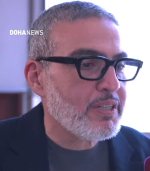
A new partnership between the UK and German governments has been agreed today (Friday 3 November 2023) to help secure safe, affordable and clean energy for consumers in both nations
for the long term and bolster energy security.
Under the new partnership signed in London by Energy Security Secretary Claire Coutinho and Germany’s Vice Chancellor, Robert Habeck, the UK and Germany have reaffirmed their shared ambition and commitment to net zero and progressing the energy transition.
Europe’s 2 largest economies have also doubled down on commitments made under the Paris Agreement to limit global warming to 1.5 degrees.
The energy and climate partnership sees both countries commit to:
enhance cooperation in renewables, notably offshore wind and electricity interconnection, to remove regulatory barriers and accelerate deployment of offshore hybrid projects
share industry knowledge and expertise to improve the exploration of carbon capture, utilisation and storage, including the cross-border transport of CO2
strengthen and promote regional and global energy security, including discussions on winter preparedness, security of infrastructure and supply chains
share best practices and lessons learned on industrial, buildings and heat decarbonisation, energy efficiency and net zero policies and strategies
Energy Security Secretary Claire Coutinho said:
The UK and Germany agree on the importance of clean, affordable energy and we both recognise its crucial role in growing our economies and guaranteeing national and global energy security.
We are already working together in the North Sea to deliver our world-leading offshore wind ambitions, as well as linking our countries with subsea electricity cables.
Today’s agreement will see us extend and deepen our partnership to ensure we continue to lead Europe and the world in making the green transition.
German Vice Chancellor and Federal Minister for Economic Affairs and Climate Action Robert Habeck said:
Germany and the UK face similar challenges. We have made good progress regarding the transition towards climate neutrality, but there is still a long path ahead of us. Cooperation with reliable partners can help all partners to advance not only faster, but better.
We can learn from each other’s experiences, share knowledge and work together to reach our common goals. The joint declaration signed today builds upon a long history of cooperation and provides a sound framework for successfully working together in future.
The energy and climate partnership incorporates the UK-Germany hydrogen partnership signed by Lord Callanan in September. This aims to accelerate the role of low carbon hydrogen - in particular from renewable sources – in both nations’ energy mix and commits to working together to develop the global hydrogen economy.
Germany was the UK’s second largest trading partner in the 4 quarters to the end of Q1 2023, accounting for 8% of total UK trade. British and German companies are already collaborating on joint projects in the North Sea and both countries have committed to maximise its renewables potential, most recently at the Ostend North Sea Summit.
In the field of offshore wind, around 75% of installed offshore wind capacity in the North Sea is in German and British waters. This is helping to drive the UK’s ambition for up to 50GW of offshore wind, including up to 5GW of floating offshore wind, by 2030. Germany is aiming at installing 30GW by 2030.
The first phase of major construction of the £2.4 billion NeuConnect project, the first subsea electricity cable between the UK and Germany, was completed this week. The project, once operational in 2028, has the potential to power up to 1.5 million homes in the UK and Germany over its lifetime with reliable, affordable and clean energy. When completed, it will be the second longest UK electricity power line with approximately 725km of land and subsea cables, connecting Kent and Wilhelmshaven.
Another interconnector project connecting the UK to Germany is currently in development and awaiting regulatory approval from Ofgem.
Beverley Cornaby, Director, Policy and Systems Change Collaborations, Cambridge Institute for Sustainability Leadership (CISL):
Clean power generation is front-and-centre of the UK’s strategy to reach net zero by 2050. This partnership will support these aims by providing a blueprint on energy and climate between Europe’s 2 largest economies – helping the UK and Germany to bolster cooperation, remove regulatory barriers on renewables and share knowledge on industrial decarbonisation.








































